FROM THE EARLY DIFFICULTIES
Master Pham Hoai Anh, Deputy Director of the Center for Student Innovation and Entrepreneurship at Hanoi University of Science and Technology, still clearly remembers the days of preparing for her study abroad trip to Cambridge University (UK), a school that is always in the top 5 best universities in the world according to the rankings of Quacquarelli Symonds and Times Higher Education. "It was a very arduous journey," said Ms. Hoai Anh.
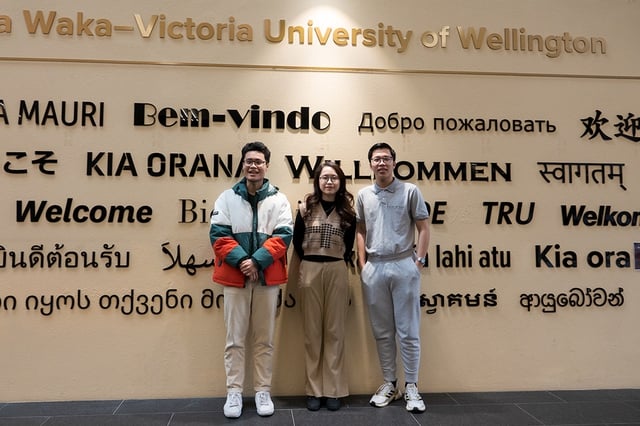
Bachelor's degree students in New Zealand, a country that has just announced a government scholarship for undergraduate degrees exclusively for Vietnamese people starting this year.
PHOTO: NGOC LONG
One difficulty is that around 2010, Cambridge University did not recognize Vietnamese bachelor's degrees as equivalent to British bachelor's degrees, but only considered Vietnamese master's degrees as equivalent, according to Ms. Hoai Anh. Therefore, to apply for the master's programin education at this university, the female bachelor of Hanoi University of Science and Technology had to quickly defend her thesis and get her first master's degree at the University of Foreign Languages (Vietnam National University, Hanoi).
Similar difficulties occurred at the undergraduate level, when foreign universities even created their own lists of the few Vietnamese high schools whose degrees they accepted. "That was a very unfortunate time for Vietnamese people," said Dr. Le Bao Thang, Director of the international education consulting company OSI Vietnam, referring to the 1990s - 2000s when the trend of studying abroad began to take shape and gradually exploded.
DIRECTLY RECRUITING VIETNAMESE CANDIDATES BASED ON HIGH SCHOOL GRADUATION DIPLOMA
To date, the discrimination has virtually disappeared, according to experts. For example, if you want to study in the US at the master's level, previously you had to take standardized tests like GRE, GMAT, but now you can apply freely. Or at the undergraduate level, universities in Australia, New Zealand, Korea, China... have accepted Vietnamese candidates directly based on their high school diploma.
The advantages in applying for short-term, full-time programs at many foreign universities come from five main factors, according to Dr. Tran Thi Ly, professor of the Faculty of Education, Deakin University (Australia). First, it is Vietnam's potential in providing international students for universities, in the context of relations between some countries facing many conflicts.
Second, the need to diversify international student sources in countries such as Australia, the US, the UK, and Canada has led to universities in these countries making efforts to expand their source markets to Vietnam.
Third, the increase in diplomatic relations and cooperation between Vietnam and a number of countries with developed education, such as Vietnam upgrading relations to Comprehensive Strategic Partnership with the US, Australia... or in 2025 with New Zealand, Singapore, has contributed to creating favorable conditions for Vietnam to strengthen educational cooperation and support student mobility.
In addition, the fact that Vietnamese schools have achieved international certification for some university training programs also creates conditions for the movement of students at this level into short-term, joint or transfer programs. "The status of the Vietnamese high school diploma is also one of the influencing factors," said international education researcher Tran Thi Ly.
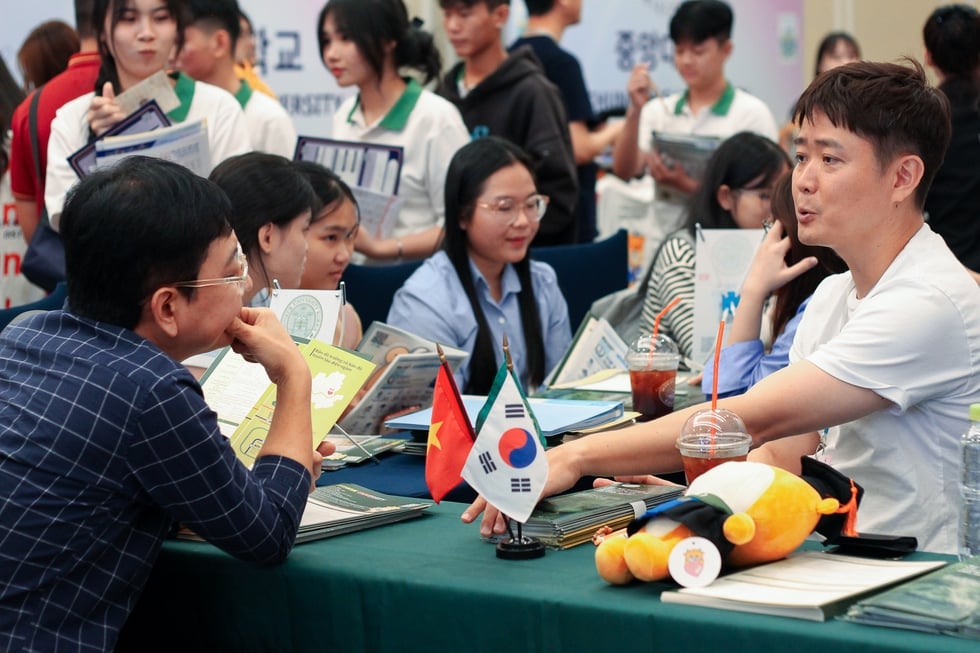
Vietnamese students listen to advice from Korean university representatives, which is also the country with the largest number of Vietnamese international students.
Photo: Ngoc Long
MORE STUDY ABROAD OPPORTUNITIES
Another factor that shows that the world is increasingly opening its doors to Vietnamese students studying abroad is the increase in joint training programs between Vietnamese and foreign universities. Specifically, according to statistics from the Ministry of Education and Training, as of June 2024, a total of 62 Vietnamese universities implemented 369 joint training programs with foreign universities, including 285 bachelor's programs, 74 master's programs and 10 doctoral programs.
By country and territory, the UK leads with 120 joint training programs, followed by Australia (40), the US (34), Germany (28), France (26), South Korea (21), Taiwan (14) and the remaining 86 programs are from other countries. Meanwhile, by field, the business, finance, accounting, administration and management group accounts for 50%; the remaining 50% is from science and technology, social sciences and humanities, and other fields.
Regarding short-term programs, student exchange activities are also taking place actively. In particular, Hanoi National University has recently created conditions for students to exchange at schools in France, Japan, Singapore... or most recently Tsinghua University, the number 1 school in China. In addition, students also have the opportunity to study abroad through spring and summer camp programs organized by foreign universities.
Mr. Leighton Ernsberger, Director of Education and English Programs for East Asia at the British Council, commented that Vietnam is focusing on ensuring the quality of education throughout the system. This helps Vietnam become an educational center in the region like Malaysia and Singapore, especially when the third wave of transnational education (TNE) is taking place.
One of the notable projects of the British Council, according to Mr. Ernsberger, is the implementation of the project "European Union to Support Higher Education in the ASEAN Region" (EU SHARE), with the goal of building a common higher education space among Southeast Asian countries, helping to increase student exchange activities among countries, including Vietnam. In addition, this agency also focuses on analyzing the Vietnamese market so that British universities can cooperate more effectively.
"Vietnam is one of the countries that we prioritize in building educational cooperation relationships, especially in terms of student exchange and study journey. And in recent years, the number of Vietnamese students participating in TNE programs has also increased significantly," the director shared, adding that Vietnam is also attracting international students in addition to nearby destinations such as Hong Kong and Malaysia.
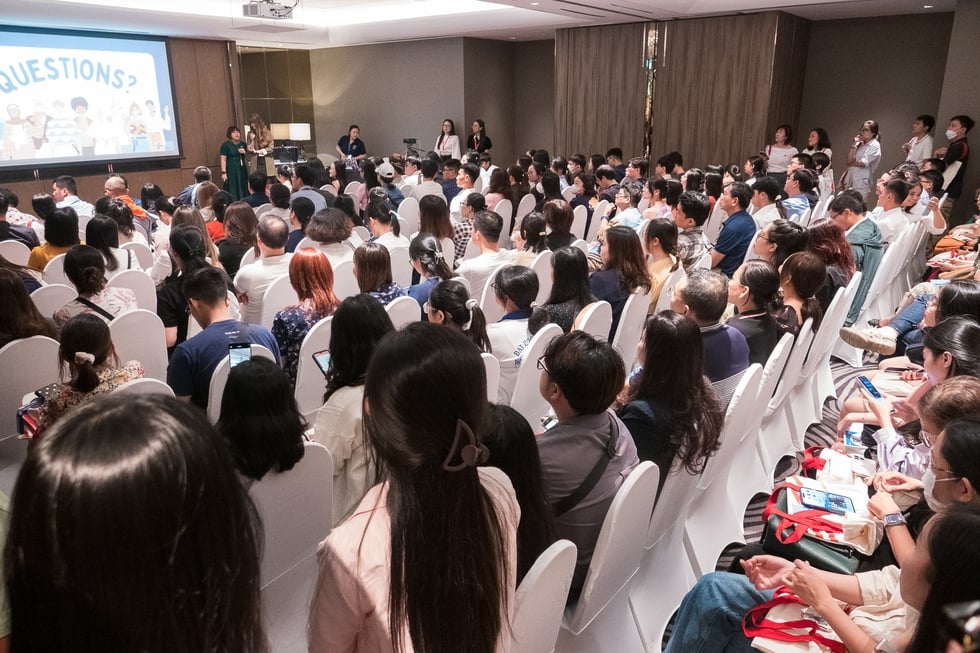
Vietnamese parents and students listen to information about how to apply for a US student visa at an event organized by the US government.
Photo: Ngoc Long
T INCREASE THE NUMBER OF SCHOLARSHIPS
Another highlight is that there are more and more scholarships at various levels for Vietnamese people. Just considering scholarships from the Vietnamese Government and other countries, in 2025, there will be more than a thousand scholarships to study abroad in prominent countries and territories such as the US, Australia, New Zealand, UK, Canada, Russia, France, Italy, India, Korea, mainland China, Japan, Taiwan, Singapore... Most of the above government scholarship programs are fully valued.
Among these, New Zealand is currently one of the few countries that offers scholarships specifically for Vietnamese students, from high school to postgraduate level through three different scholarship programs: NZSS, NZUA, and Manaaki. This comes from New Zealand considering Vietnam a priority market in its education services export strategy, Ms. Caroline Beresford, New Zealand Ambassador to Vietnam, explained.
"Vietnam is also a top priority, on par with the Pacific region, in our foreign and trade policy and is where we are focusing a lot of our resources," Ms. Beresford shared. "Education is considered a "jewel" in the relationship between the two countries," the Ambassador added.
Another study abroad direction that many people are interested in is vocational training, especially in a country that is particularly lacking in skilled workers like Germany, said Christopher Scholl, Deputy Consul General of Germany in Ho Chi Minh City. "According to statistics from the visa department, we have seen that in recent years, more and more Vietnamese people want to go to Germany to study and work," said Mr. Scholl.
"There are some industries that need workers in particular, such as nursing, hotels and restaurants, and crafts. After working in Germany, you can return to Vietnam to serve the country and we always have programs to support you in starting a business," said Mr. Scholl.
Study abroad consulting market is booming
According to a report from the Department of International Cooperation (Ministry of Education and Training), in 2024, the country will have 3,423 organizations providing study abroad consulting services, of which 2,860 are operating and the rest are temporarily suspended. Hanoi leads with 1,304 organizations, followed by Ho Chi Minh City (513), Nghe An (150), Da Nang (95), Hai Phong (64), Hai Duong (60) and several other localities. "The Vietnamese study abroad consulting market is growing strongly," the report stated.
Source: https://thanhnien.vn/bang-cap-vn-duoc-cong-nhan-tang-co-hoi-du-hoc-cho-nguoi-viet-185250430220835155.htm


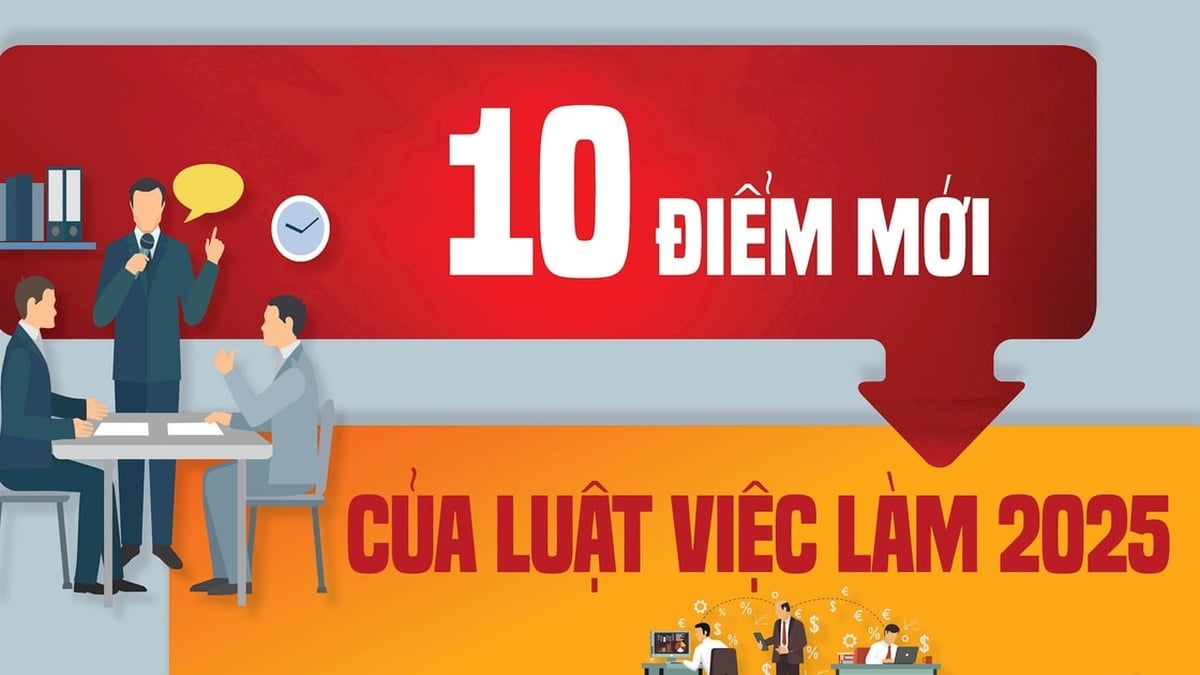
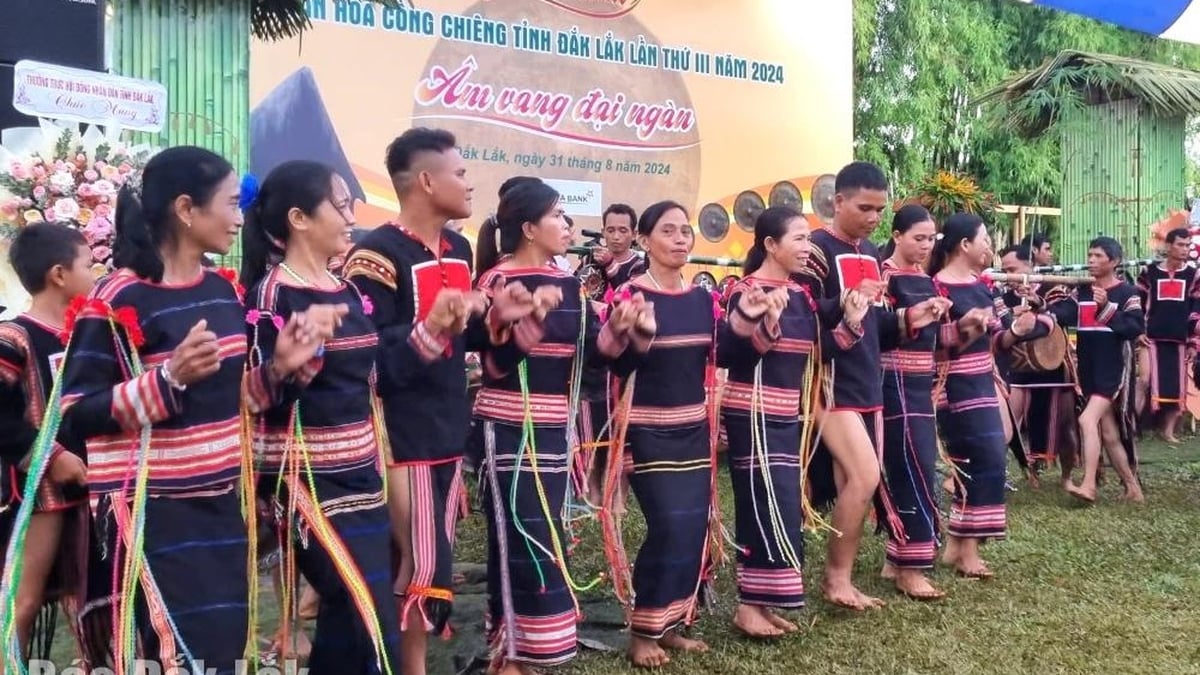
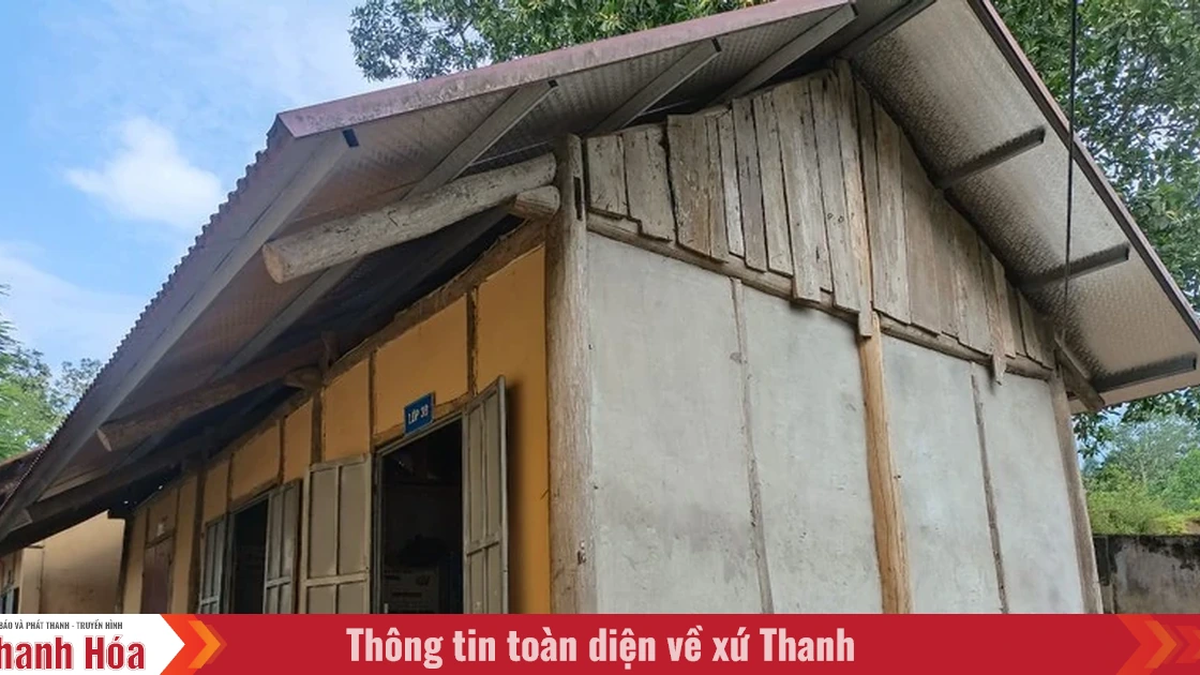

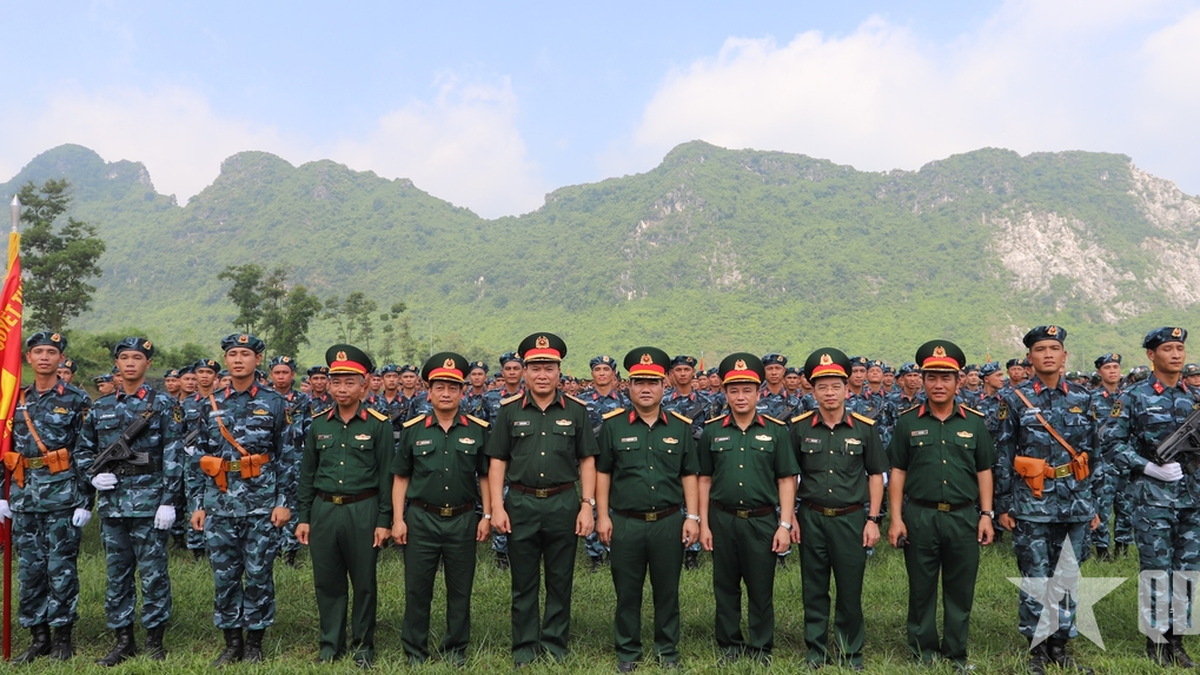



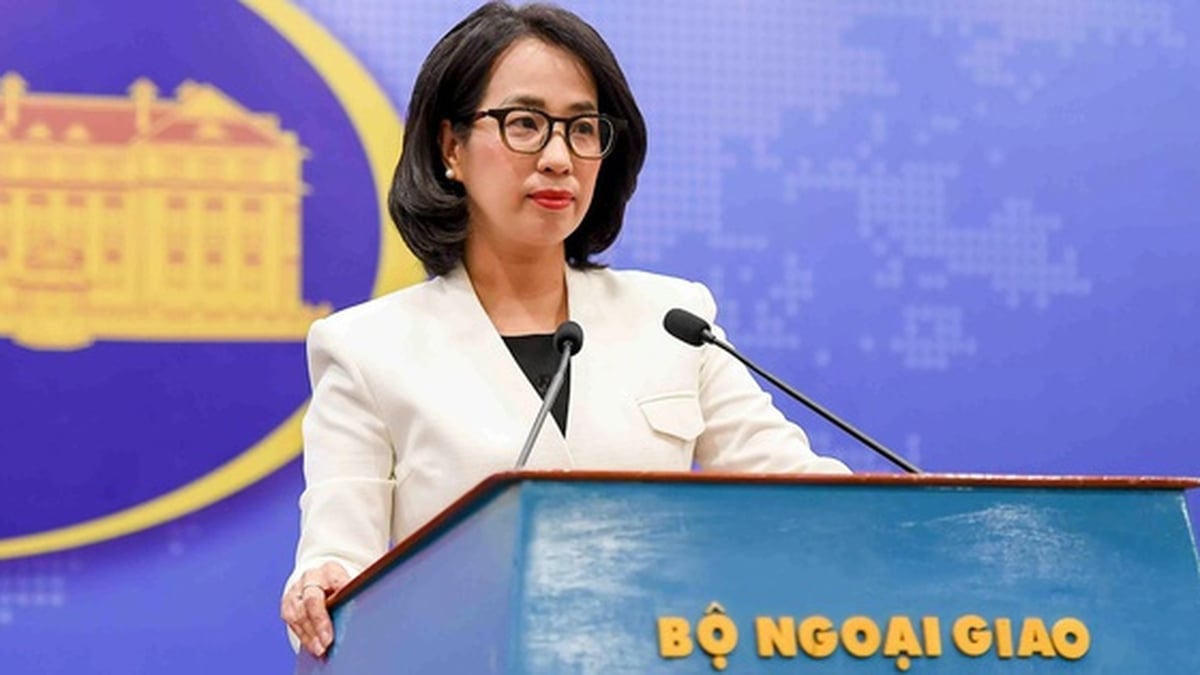
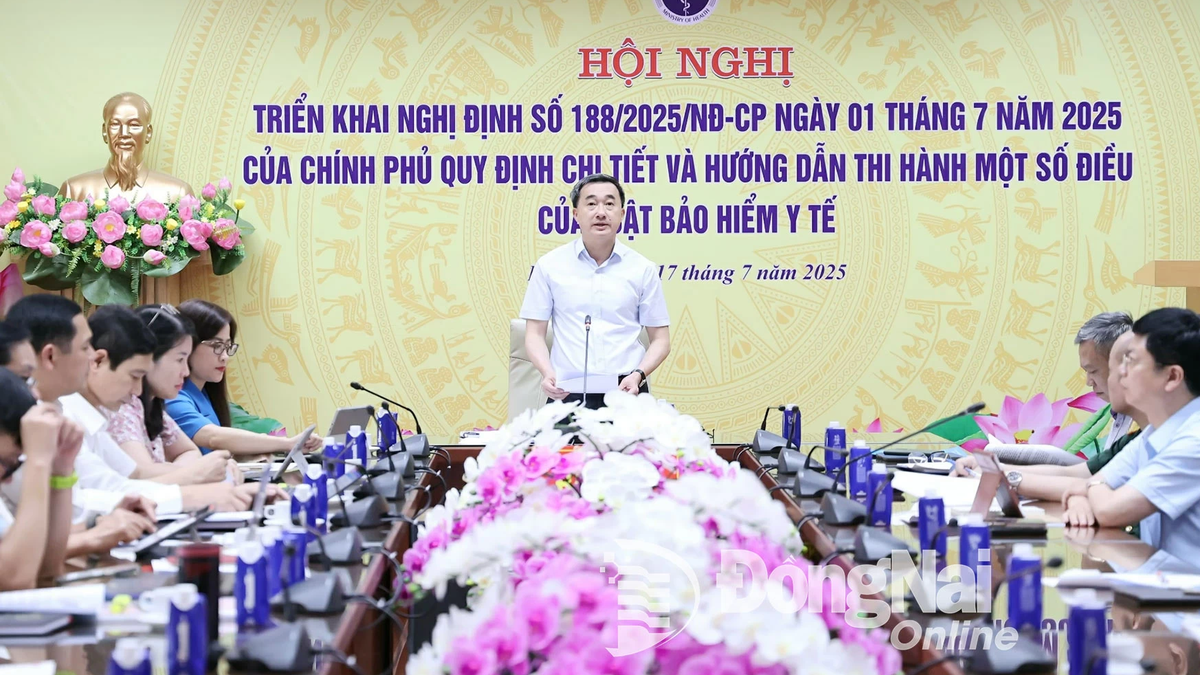






















































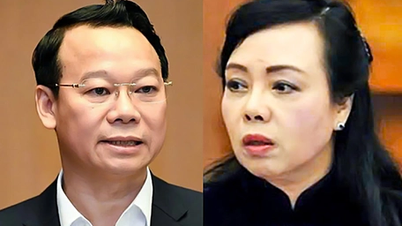







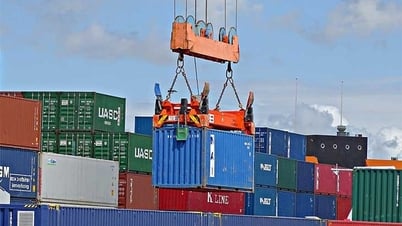
























Comment (0)